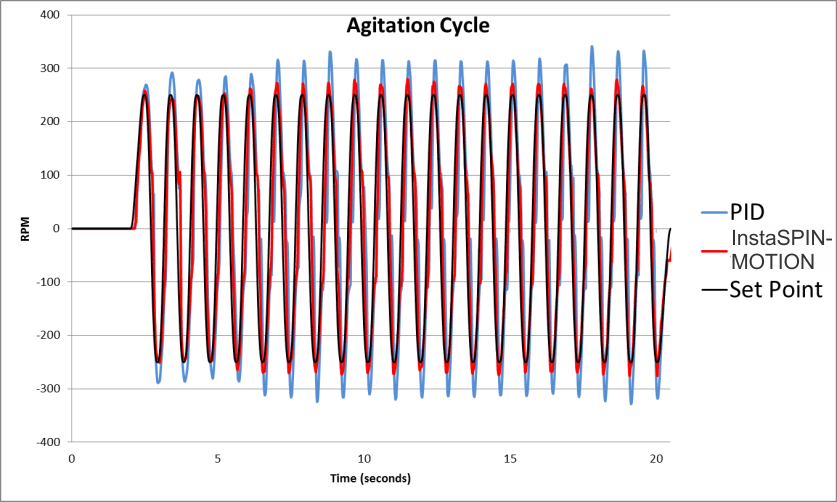SPRUHW1A June 2014 – October 2021 TMS320F28052-Q1 , TMS320F28052M , TMS320F28052M-Q1 , TMS320F28054-Q1 , TMS320F28054M , TMS320F28054M-Q1
- 1Read This First
- 1 F2805xM InstaSPIN-MOTION Enabled MCUs
- 2InstaSPIN-MOTION Key Capabilities and Benefits
- 3InstaSPIN-MOTION Block Diagrams
- 4Application Examples
- 5Evaluating InstaSPIN-MOTION Performance
- 6Microcontroller Resources
Agitation Cycle
During agitation, the motor switched between the 250 rpm and -250 rpm setpoints 20 times. The results, shown in Figure 5-2, demonstrate that InstaSPIN-MOTION more closely matched the reference profile. Additionally, the maximum error for PI was 91 rpm (341 - 250 = 91 rpm); whereas, the maximum error for SpinTAC was 30 rpm (280 - 250 = 30 rpm).
 Figure 4-2 InstaSPIN-MOTION Minimizes Error
Figure 4-2 InstaSPIN-MOTION Minimizes Error